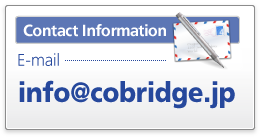Cobridge as Your DMAH
Cobridge has the highest-level DMAH license (satisfying the highest qualification and requirement for professional staffing) for medical devices, allowing for the greatest scope of DMAH services. This comprehensiveness in the DMAH licensing is a showcase of the rigor of the company, an illustration of how well qualified it and its full-time staff are—all capabilities, all of the required staffing, for instance, is in-house.
For medical devices, Cobridge has a comprehensive Type 1 DMAH license, allowing it to act as DMAH for all medical devices, Class II through Class IV. (Class I medical devices as elsewhere do not require review and approval by the health authorities and therefore do not invoke the need for a DMAH.)
For the avoidance of doubt, for Class I medical devices, Japanese MAHs register products by submitting “Todoke” (not an application for approval, but a notification to register) to the PMDA as registrants, and sell products by their own responsibilities. There are no approvals or certifications for Class I medical devices. Thus, DMAH system is not applicable for Class I medical devices.
Cobridge as Your Most Cost-effective Option
To appreciate the comprehensiveness and advantage of Cobridge compared to the multitude of DMAH-specializing firms, a time course of the involvement of the DMAH in the regulatory pathway to market is illustrative. The approval application must be submitted by a DMAH to the Pharmaceuticals and Medical Devices Agency (PMDA) for review and approval. Cobridge thus represents the applicant from the time of application and takes care of the application until approval, including acting as the PMDA correspondent. Thus Cobridge can cover all of the required regulatory activities associated with obtaining marketing approval for a medical product, from gap-analysis and preparation of the approval dossier (see the associated pages on this website), through shepherding the application through the review and approval process by the PMDA to performing the regulatory-compliance maintenance activities as the ongoing DMAH for the approved product.
During review and approval for those medical products, especially for medical devices where foreign clinical investigations may often be used in support of an approval application, Cobridge can also perform an essential task associated with acceptance of foreign clinical studies by the PMDA. Cobridge prepares and submits documentation in support of the overseas clinical study’s GCP compliance to the PMDA for a Compliance Review. This involves collecting information regarding the study in general, as well as detailed information for each of the participating clinical sites. Much of this information is not present in the typical package of registration materials supplied for foreign registrations. Gathering the information from diverse sources often involves some communications effort with the foreign firm. Beyond the application preparation and submission, there is also a need to conduct verification of data contained in the clinical database against case report forms, and confirmation of information in the study report against data in the clinical database (this latter goes beyond compliance matters to those involved in review of safety and effectiveness by the PMDA). The PMDA’s focus with regard to compliance is somewhat different from that of the U.S. FDA’s, and even clinical studies that have passed muster with FDA’s Biometrics inspectors have not infrequently had certain inconsistencies that need to be rectified or risk-managed lest they become a show-stopper during the PMDA Compliance Review. Our experience encompasses PMDA Compliance Review of clinical studies submitted by major foreign medical device manufacturers in support of Japanese approval applications.


